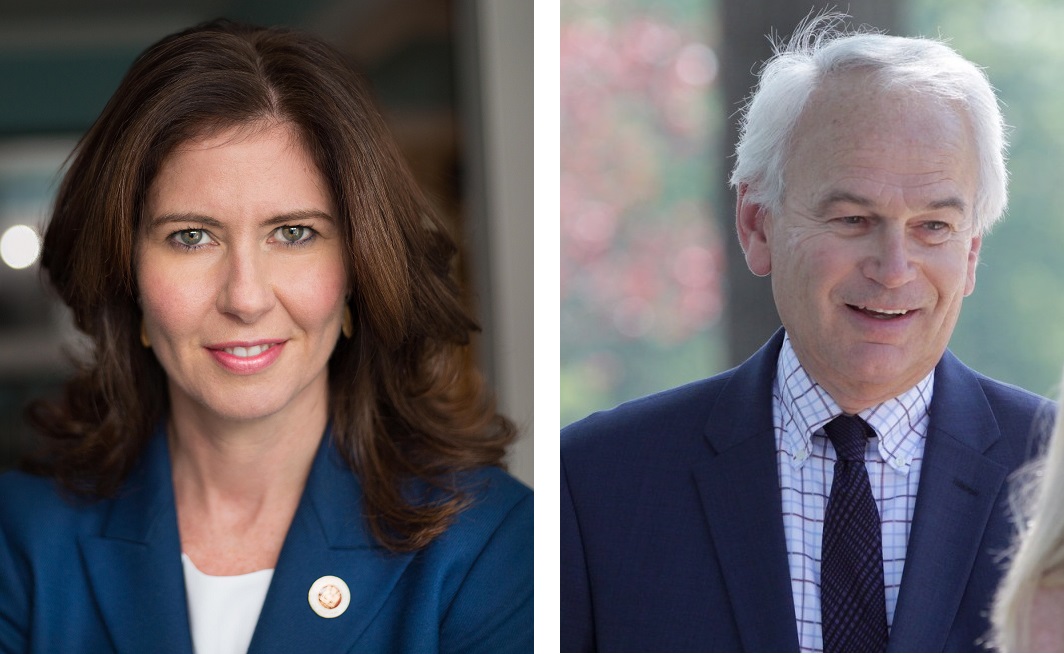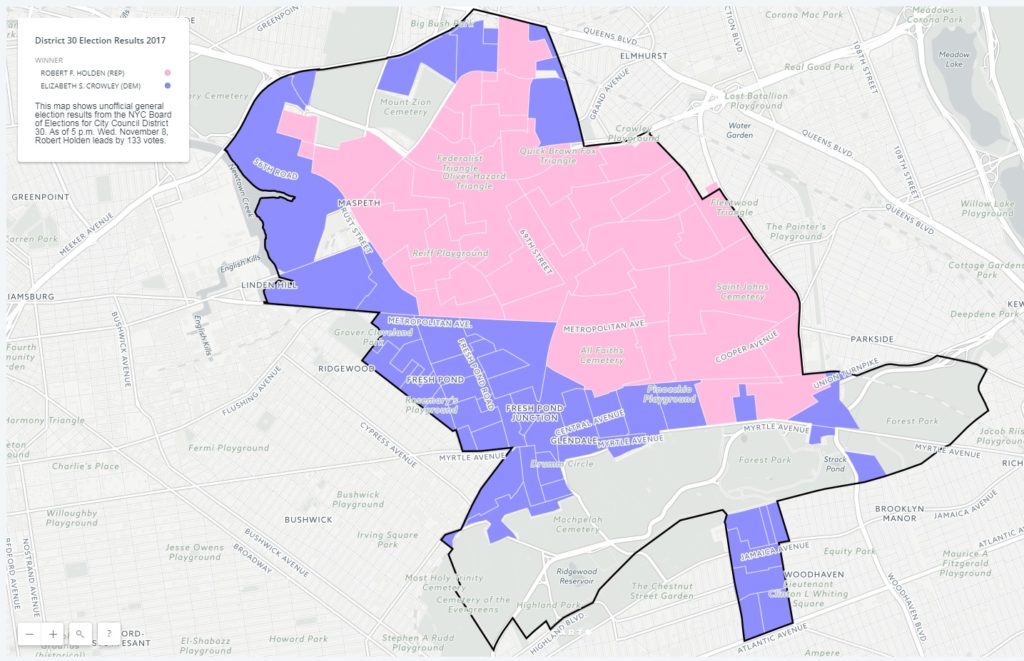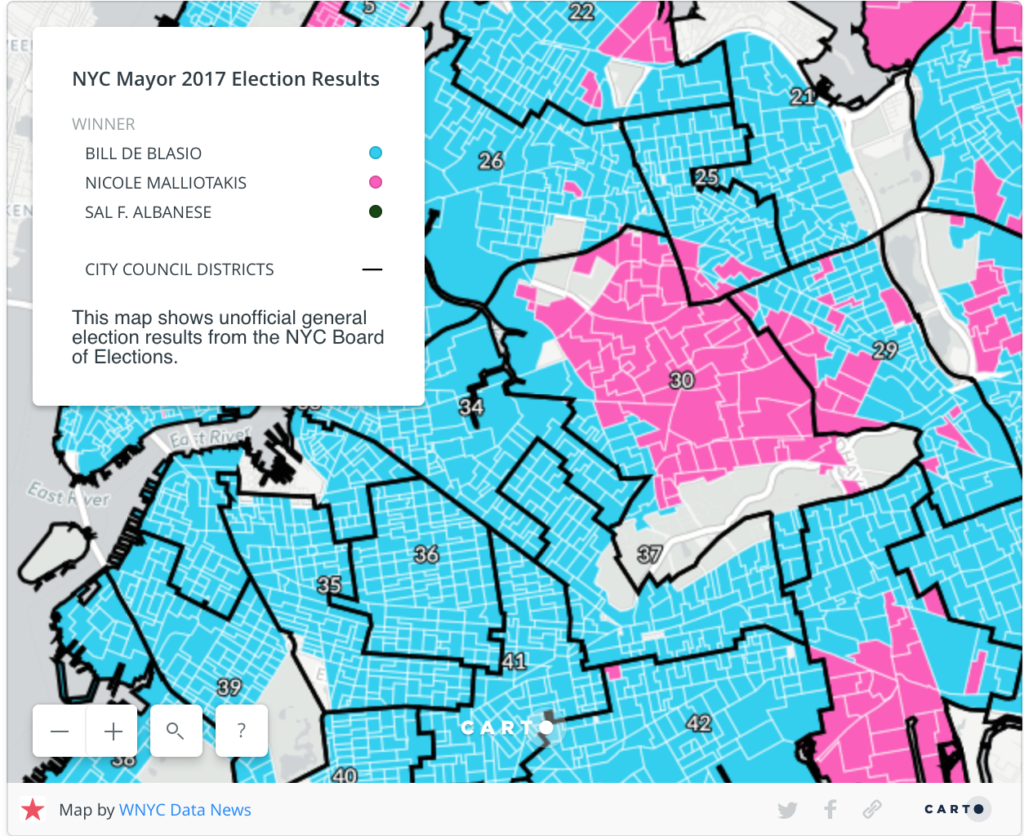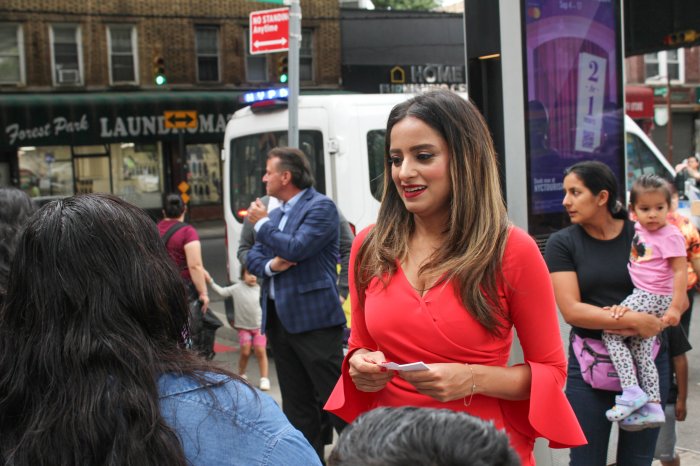Where did it all go wrong for Elizabeth Crowley on Election Day?
An incumbent New York City Council Democrat is normally a shoe-in for re-election; a few in Queens didn’t even have an Election Day opponent. Those incumbents who did have competition had no problem brushing it aside.
It’s easy to see why. At the top of the ticket, Bill de Blasio was easily re-elected mayor, the first Democratic incumbent to do so in more than 30 years, winning 60 percent of the vote in Queens despite being a polarizing figure in the borough. Democrats up and down the ballot in Queens, in New York state and in many other states around the country had a ball on Election Day, as the party gained momentum in the midst of the unpopular Trump administration.
Yet in the 30th Council District, Crowley was the exception. She’s the only incumbent City Council Democrat to have lost her seat to a Republican challenger, Robert Holden, on Election Day. How did it happen?
For years, Crowley and Holden battled it out on the civic scene. Over the last nine years, they clashed on numerous issues from the construction of Maspeth High School and the opening of a proposed Maspeth homeless shelter; to larger policy matters such as immigration and the potential closure of Rikers Island.
The race began in April when Holden, the longtime president of the Juniper Park Civic Association, announced he would challenge Crowley in the September Democratic primary. Over the next few months, they waged a heated battle for the public’s support primarily through fliers that inundated mailboxes around the district.
Both candidates used the fliers to vividly portray the other as public enemy No. 1; pro-Crowley fliers had painted Holden as “Angry Bob,” an obstructionist blocking progress on just about anything. On the other hand, pro-Holden fliers sought to paint Crowley as the local equivalent of de Blasio, whose liberal agenda clashes with many in the predominantly conservative district.
Crowley’s tactics seemed to pay off in the September primary, which was open only to registered Democratic voters. She won decisively with nearly 64 percent of the vote, but Holden vowed to go on to the end in November as a third-party candidate; he had, after all, secured three ballot lines (Conservative, Reform, Dump de Blasio) in the general election.
Well before the primary, some observers believed that Holden stood a better chance against Crowley in the general election — open to all registered voters, regardless of party. As a self-described Reagan Democrat, Holden figured to secure more conservative Republicans and independents in the 30th District, which includes some of the few Queens areas that went for Donald Trump last November.
But third-party candidates in any election, even with the most rigorous campaign, have difficulty attracting cross-ballot voters to their cause. The Republican line in the Council race, meanwhile, had been occupied by Joseph Kasper, a little-known lawyer whose campaign was virtually invisible.
Things changed in late September, when Kasper dropped out of the City Council race after being nominated by the Queens County Republican Party for a judgeship. This enabled party leaders to select a replacement for Kasper on the City Council ballot — and Holden, according to new Queens County GOP Chairperson Joann Ariola, was a natural choice.
Getting the Republican line proved huge for Holden, and devastating for Crowley. Holden wound up getting more than 8,400 Republican votes on Election Day, capitalizing on those who turned out in the district to vote for the Republican mayoral nominee, Assemblywoman Nicole Malliotakis.
You can see the impact in maps created by WNYC showing the results of both the Crowley-Holden race and the mayoral contest in the 30th District. They are nearly identical. Both Malliotakis and Holden captured most of Maspeth, Middle Village and the eastern end of Glendale, with de Blasio and Crowley carrying the rest.
Republican line votes, combined with those he received on the third party lines, helped Holden edge Crowley in the closest citywide election this year. Line voting in another Queens race, however, had a far different impact.
Malliotakis won a large number of electoral districts in the 19th District in northeast Queens, but incumbent Councilman Paul Vallone easily won re-election, taking 52 percent of the vote. Reform Party candidate Paul Graziano — who, like Holden, unsuccessfully challenged the incumbent in the Democratic primary but continued vigorously campaigning through Election Day — wound up finishing third behind the Republican nominee, Konstantinos Poulidis. The GOP candidate managed to get more than 6,100 votes despite having barely run a campaign.
Anemic turnout also played a role in Crowley’s demise. Citywide, less than 23 percent of all registered voters showed up on Election Day of 2017. The 30th District similarly suffered from voter apathy, especially when you contrast the vote totals in the Crowley-Holden race with that of the Trump-Clinton presidential race last year.
In the 74th Election District in Middle Village, Trump and Clinton got a combined 708 votes, while Crowley and Holden secured just 294 combined, a 58.5 percent decline over last year’s totals. Trump and Holden carried the district.
The 73rd Election District, also in Middle Village, had a combined 639 votes for Trump and Clinton in 2016, while this year, Holden and Crowley tallied 261 votes, a 59.2 percent dropoff. But Clinton won the district last year, whereas Crowley lost to Holden there.
The same held true in Maspeth’s 13th Election District. Last year, Clinton defeated Trump there 323 to 287. But this time around, Holden won 216 votes while Crowley secured 110. The 326 votes tallied in the Council race in the district were 46.6 percent lower than the total number of votes Clinton and Trump received last November.
As much as any political issue debated between Crowley and Holden — and, of course, their differences are many — the numbers seem to indicate that line voters and poor overall turnout made the 30th City Council District race of 2017 defy all trends and expectations.






































